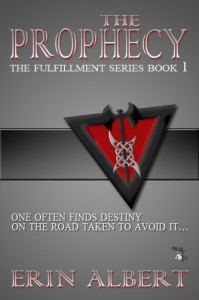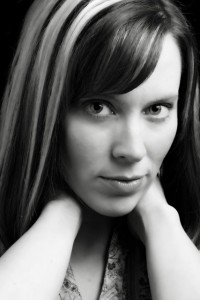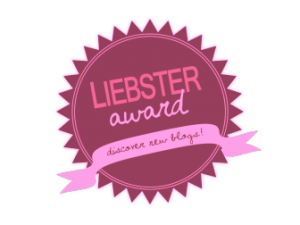One note before we get to the guest post: Just wanted to remind you all I’ll be signing Elixir Bound at Bank Square Books in Mystic, CT tomorrow from 2-4 p.m.! And now back to the show…
Returning guest Erin Albert and I both have a lot in common. Aside from being short and writing YA fantasy, we also both have experience working with books as an author and an editor, which I think gives us an insightful look at the book editing process. Let’s give Erin a big welcome as she shares what it was like editing her YA fantasy The Prophecy.
 When I first got my contract on The Prophecy, I thought I had submitted a pretty tight manuscript. I am, after all, a grammar freak. Given that, I honestly had no idea what to expect from my editors. My publisher, MuseItUp Publishing, assigned Katie Carroll and Susan Davis to be my content and line editors, respectively.
When I first got my contract on The Prophecy, I thought I had submitted a pretty tight manuscript. I am, after all, a grammar freak. Given that, I honestly had no idea what to expect from my editors. My publisher, MuseItUp Publishing, assigned Katie Carroll and Susan Davis to be my content and line editors, respectively.
I received an email from Katie about a month or so after returning my contract. That day, I happened to be at a carnival and couldn’t see her changes from my phone. I spent the rest of the afternoon distracted. Upon arriving home, I raced to the computer to see what comments she may have made. Imagine my surprise when I noted she made nearly 100 comments on the first chapter alone. Talk about a reality check!
I poured through her notes. In the process, I learned a great deal about the publishing process. I discovered adverbs—my near and dear friends—receive no love in the writing world. When I studied as an English major, my professors encouraged the use of adverbs. But Katie told me to take out as many as I possibly could. Oh, my heart ached as I chopped adverb after adverb. Next, she mentioned my point of view shifts—those subtle moments when I’m in one character’s head but show a brief thought from another character’s. I learned to recognize the times I made those slips and correct them.
Katie and I went back and forth on edits for several months, and each time, I watched my story transform, getting better and better. When Susan took over, I again had no idea what to expect. The work Katie and I had done appeared complete, yet the line edits came back with even more corrections. Susan showed me I overuse certain wording like “she knew” and “she saw.” I watched in wonderment as the story improved yet again.
Thanks to Katie and Susan, I learned a great deal about myself as a writer and about the writing world in general. I’ve taken those lessons and combined them with my own grammar freakishness to become a line editor myself. And my personal writing has made leaps and bounds. I am about to enter my second editing cycle with Katie and Susan for The Outlanders, sequel to The Prophecy. I hope I’ve addressed the problems they discovered the first time, but I’m sure a host of new changes will present themselves this second time around. I will continue to grow, hopefully improving with each round. And that’s really the biggest lesson I learned from my editors—never stop honing your craft. Never hang up your hat and say, “It’s the best it will be, and I have nothing left to learn.” You always have something left to learn. Your work can always be better. So, don’t shy away from the assistance of others. Instead, embrace it and watch your mind expand.
The Prophecy blurb:
Growing up on a small farm in the kingdom of Vanguard, seventeen-year-old Layla Givens lives a deceptively tranquil existence. But her carefully constructed life quickly falls apart when she’s abducted by a religious zealot who proclaims her The Fulfillment of an ancient peace prophecy and whisks her away to marry her greatest enemy.
Wilhelm, Prince of the Ethereals, is reluctant to meet his new bride. He’s grown up believing Vanguards are evil, an enemy to fight and fear…not love. Can he set aside his prejudices and work alongside Layla to bring lasting peace after centuries of war?
Nash, a loner who has never fit in, carries a huge secret, one big enough to destroy both kingdoms. When he accidently meets Layla, he’s no longer content to live in the shadows, but he must resist his growing attraction—for her safety and for the longevity of the two kingdoms.
When Nash’s secret is revealed, a firestorm sweeps through both realms, with Layla at the center. Now she must choose between duty and desire while the fate of two nations hangs in the balance.
Purchase The Prophecy at the MuseItUp website, Amazon, Barnes & Noble, Kobo, and other ebook retailers.
 About the Author:
About the Author:
Erin Albert is an author and fitness trainer. Since she picked up Morris the Moose Goes to School at age four, she has been infatuated with the written word. She went on to work as a grammar and writing tutor in college and is still teased by her family and friends for being a member of the “Grammar Police.” In her free time, Erin enjoys acting, running, kickboxing, and, of course, reading and writing.
Find Erin online on Twitter (@ErinAlbertBooks), on Facebook, at her website, or on Goodreads.























